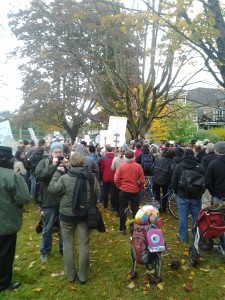Feminism is an ideal that I hold close to my heart and it makes me a little bit sad when I hear people suggest that it is irrelevant in 2012. The idea of the irrelevancy of feminism may seem positive to some, “hey! if feminism is irrelevant, that means women must have gained equality right?!” But, I would argue that it is important to recognize that oppression and inequality can still exist regardless of whether or not you are in the capacity to see/feel it. It might be possible for someone in Vancouver to feel as though equality has been reached, just look at the gender ratio for students at UBC, just over half are women. But you only have to step foot in one of Vancouver’s many mediocre eating and watering holes to realize the misogynous and sexist reality of the food service industry, where sex sells and discrimination based on looks is rampant. The objectification of their female staff members is the name of the game for these restaurants and this objectification surely plays a large role in the success of the restaurant.
These are only very modest local examples of the need for feminism in 2012. Taking the debate to the international level, one only has to look at Malala Yousafzai, the 15 year-old girl who was shot standing up for her right to go to school. One can even take into account the recent parliamentary argument given by the Prime Minister of Australia regarding rampant misogyny present in her own government.
Feminism in 2012 is not only relevant, it is necessary.



